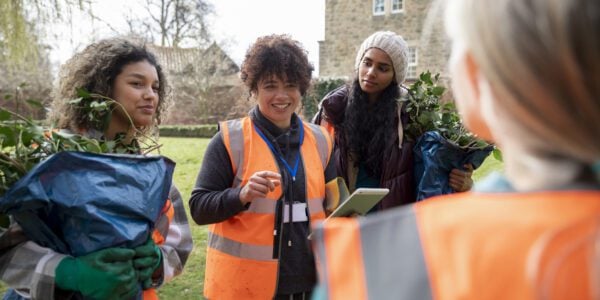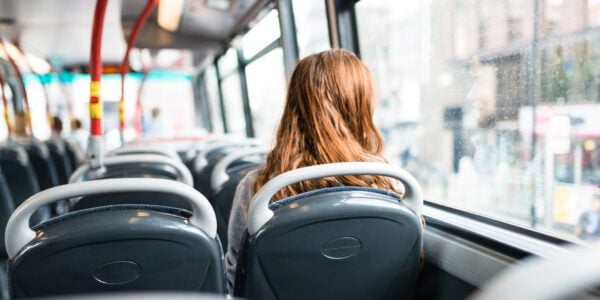
12/01/22
4 min read
Students who take A levels are less likely to drop out of university and more likely to graduate with a 2:1 or a first than those with BTECs. However, the majority of graduating BTEC students – who are more likely to be from disadvantaged backgrounds – gain at least a 2:1, demonstrating that for many students, these qualifications lead to university success.
New research led by Dr Catherine Dilnot at Oxford Brookes University and funded by the Nuffield Foundation analysed data on 1.4 million students between 2013/14 and 2017/18 to compare outcomes between students with the same educational attainment at age 16 who took different qualification pathways to university. The research team, which included Professor Lindsey Macmillan and Dr Gill Wyness of UCL Institute of Education’s Centre for Education Policy and Equalising Opportunities (CEPEO), found that:
- BTECs provide a route into university for one in four young student entrants from England, and BTEC entrants are more likely to be from disadvantaged backgrounds than their peers with A levels.
- Over 80% of students with just BTECs stay at university after their first year and over 60% of graduating BTEC students gain a 2:1 or above.
- But students who entered with just BTECs are almost twice as likely to drop out before their second year compared to similar students who have just A levels, around 1.7 times more likely to repeat their first year and around 1.4 times more likely to graduate below a 2:1.
Differences in outcomes for BTEC and A level entrants
- While students with just BTECs had a high probability of continuing with their studies, with 80% entering their second year immediately after their first, they were nearly twice as likely to drop out before the second year of university as students who had taken A levels. BTEC students had an 11% chance of dropping out compared with 6% for A level students with the same ‘average’ GCSE qualifications and similar other characteristics.
- Students with BTECs were also 1.7 times as likely to repeat their first year as similar A level students with the same GCSE grades.
- Of graduates, 60% of those with just BTECs graduated with a 2.1 or better, but they were 1.4 times as likely to graduate below a 2:1 than similar students with just A-levels. BTEC entrants with ‘average’ GCSE results had a 25% chance of graduating below a 2:1 compared with an 18% chance for A level entrants with the same GCSE grades and similar other characteristics.
- There are differences in university outcomes between entrants with a combination of A levels and BTECs compared with just A levels, but they are smaller than the differences between those entering with only BTECs and only A levels.
- Analysis of data from one university providing detailed module scores suggests that those with BTECs perform less well on exam-assessed than coursework-assessed modules. Since recent reforms, BTECs must have a proportion of external assessment which may prepare BTEC students better for university exams. The cohorts in this research predated these reforms.
Differences in outcomes by A level type
- Having more traditional (facilitating – see note 2 below) A levels was related to lower chances of dropping out, repeating, and graduating below a 2:1 than a similar student doing the same degree course at the same university.
- The opposite was true for ‘less suitable’ A levels for dropping out and graduating below a 2:1.
Is having an A level in the same subject as your degree course helpful, even if universities don’t ask for it? And what about BTECs?
The team examined data for ten popular degree subjects where a related A level or BTEC exists but is usually not required for entry. For many of these courses, having a related A level was associated with better outcomes, even though the related A level was not in a facilitating subject (see note 2). For example, having computing, psychology, and sports science A level for students on those degree courses respectively increased the chances of all three positive outcomes (continuing to the second year, not repeating, graduating with at least a 2:1). Having accounting, business, drama, law, and sociology A levels was also related to better outcomes on at least one of the measures.
For BTECs the picture is more mixed: among the five degree courses examined by the team only one subject was related to better outcomes: having performing arts rather than any other BTEC for drama students. For nursing, people with a health related BTEC were more likely to drop out and graduate below a 2:1 than those entering with BTECs in any other subject.
Dr Dilnot said: “Reform of level three qualifications is high on the Government’s agenda, with the publication of a policy document in July 2021 on the defunding of large BTECs in the context of introducing a more clearly two pronged approach to further study and training, with A levels on the one hand and T-levels on the other. We welcome the planned postponement of the removal of funding for most BTECS and would encourage further consideration of their future. It’s very important to note that although there are differences between outcomes for BTEC and A level students, the overwhelming majority of students entering with BTECs or combinations do not drop out, and the majority of those graduating do so with at least a 2:1.”
Dr Wyness said: “It is clearly important to address the differences in university outcomes between those with A levels and BTECs, working with universities, qualifications authorities and government to ensure BTEC students can flourish at university. But it should be remembered that, without the availability of BTECs, many disadvantaged students might not have attended university at all.”
About the research
- Linked administrative National Pupil Database, Individual Learner Record and Higher Education Statistics Agency data was used for the main analysis, supplemented by data from seven different universities which also included module scores.
- The research uses a taxonomy of A levels developed by Dr Dilnot from the published preferences of the Russell Group of 24 highly selective UK universities, categorising A levels as ‘facilitating’, ‘useful’, and ‘less suitable’ for university entry. Facilitating subjects are maths, further maths, physics, chemistry, biology, English literature, languages, history and geography. ‘Less suitable’ subjects include accounting, business, law, media studies, sports science.
- The popular degree courses which generally do not have a requirement for the same subject for entry examined in this study are accounting, business, computing, drama, law, media studies, nursing, psychology, sociology and sports science. For all but nursing there is an A level in the related subject. For business, drama, law, nursing and sports science there are related BTECs (Health studies/Health and social care in the case of nursing).































